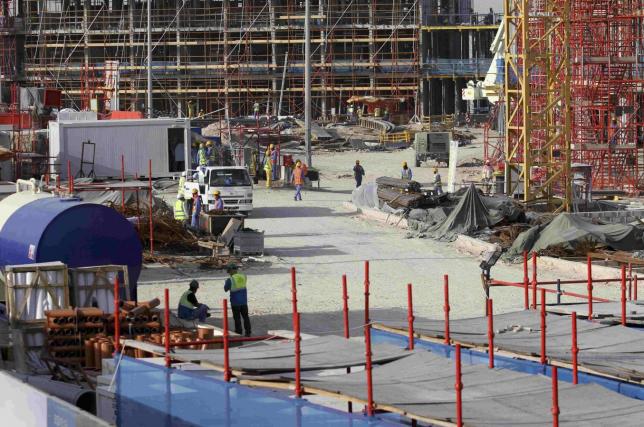Nepalis among migrant workers blocked from leaving Qatar
MUSCAT: Qatar has refused to allow scores of migrants from countries including India, Nepal and Bangladesh to return home, violating new labour reforms to improve workers' rights, activists and trade unions said on Wednesday.
A law making it easier for migrants to change jobs and leave the oil-rich Gulf state - where many of them have been recruited to build soccer stadiums ahead of the 2022 Fifa World Cup - came into effect in December.
The Qatari government has defended the reforms to replace the "kafala" sponsorship system, which forces foreign workers to seek their employer's consent to change jobs or leave the country - a measure rights groups say leaves workers open to exploitation.
Trade unionists and activists say migrant workers still require an exit permit from the government - and of the 760 or so permit requests made by migrants, more than a quarter have been denied since the law was passed on Dec. 13 last year.
"Qatar's notorious exit permit system remains in place today," said Sharan Burrow, general secretary of International Trade Union Confederation. "The claim by Qatar to the International Labour Organization that the exit permit has been abolished is a lie."
Qatari officials were not immediately available to comment, but data reported by the state-run Qatar News Agency earlier this month said the newly-established Exit Permit Grievances Committee had rejected 213 requests made up until Feb. 15.
No reason was given for the requests being denied.
The International Labour Organization has given Doha until November to implement the reforms or potentially face an investigation into the forced labour of migrants in the lead up to hosting the World Cup.
Campaigners say the reforms do not go far enough, citing the need for workers to get their employer's permission to seek alternative employment during the period of their contract, which can last up to five years.
If workers change jobs without permission they face criminal charges for "absconding" which can lead to their arrest, detention and deportation, labour rights experts say.
"It looks like the system is very much still in effect and will continue to enable the exploitation of workers and the violation of their rights, including forced labour," said Francesca Ricciardone of the Solidarity Center.






